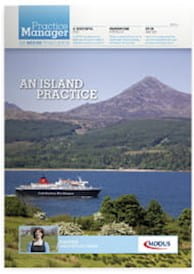Day one
A GP – Dr K – is a partner in a small village practice and is at home on an afternoon off when the receptionist calls from the surgery. A patient – Mr L – has phoned the practice wishing to speak with him in regard to an urgent personal matter. The receptionist passes on a contact number and the GP phones Mr L, whom he knows well both from the surgery and through casual contact in the village. Mr L is very angry. Just that morning he was phoned by a good friend who had been in the local pub the night before and heard it discussed that Mr L’s daughter was in rehab for a drug addiction. Dr K says he is sorry to hear this but asks how it is a “personal matter”. Mr L states that his daughter – though a registered patient – is rarely in the village, and no-one locally could know about her drug problem apart from Dr K. He accuses the GP of either discussing the matter at home or elsewhere in the village and that this constitutes a serious breach of confidentiality. The GP comes off the phone very upset and calls the senior partner.
Day two
Mr L phones the surgery again and asks to speak to the practice manager – Ms D. He repeats his allegation of breach of confidentiality and states that he wants to make a formal complaint. The practice manager asks Mr L to put this in writing so the matter can be investigated. Ms D then speaks with Dr K and the receptionist who took the initial message, asking them to write a statement setting out their versions of the events. Dr K is adamant that he never discusses matters involving patients outside of the surgery – and working in such a small community makes him even more scrupulous.
Day three
Mr L hand-delivers his letter into the surgery and the practice manager phones the MDDUS for advice. A medico-legal adviser asks her to forward anonymised copies of both the complaint and the GP’s account of the events. He also advises Ms D that consent will be required from Mr L’s daughter before the practice can respond to the complaint. Ms D acknowledges receipt of the Mr L’s letter and sets out the need for patient consent.
Day seven
The MDDUS reviews the letter and reminds Ms D that before she can send out the response she must obtain consent from the patient – Mr L’s daughter. She advises the practice manager to write to Mr L informing him that the investigation is complete and that she would be pleased to forward it to him upon receipt of the signed consent.
A MONTH later Ms D contacts MDDUS to say that she has not yet received a letter of consent from Mr L’s daughter permitting disclosure of the investigation, despite having written twice. The adviser replies that it is now reasonable to write to Mr L informing him that as consent has not been provided she is now required to close the complaint. But the practice manager is advised to ensure she keeps the papers in a complaints file as the usual timescale for raising cases under the ombudsman is 12 months after the incident, though this can be extended in extenuating circumstances.
KEY POINTS
- Maintaining patient confidentiality requires scrupulous professionalism especially in a small community.
- Ensure a third party has consent (or parental responsibility) to act on behalf of a patient in pursuing a complaint.
- Conduct a full investigation before coming to any conclusions over a perceived breach.
- Patient consent will also normally be required before the results of a complaints investigation can be shared with a third party.
From Practice Manager Issue 12, p14
This page was correct at the time of publication. Any guidance is intended as general guidance for members only. If you are a member and need specific advice relating to your own circumstances, please contact one of our advisers.
Read more from this issue of Practice Manager

Save this article
Save this article to a list of favourite articles which members can access in their account.
Save to library
